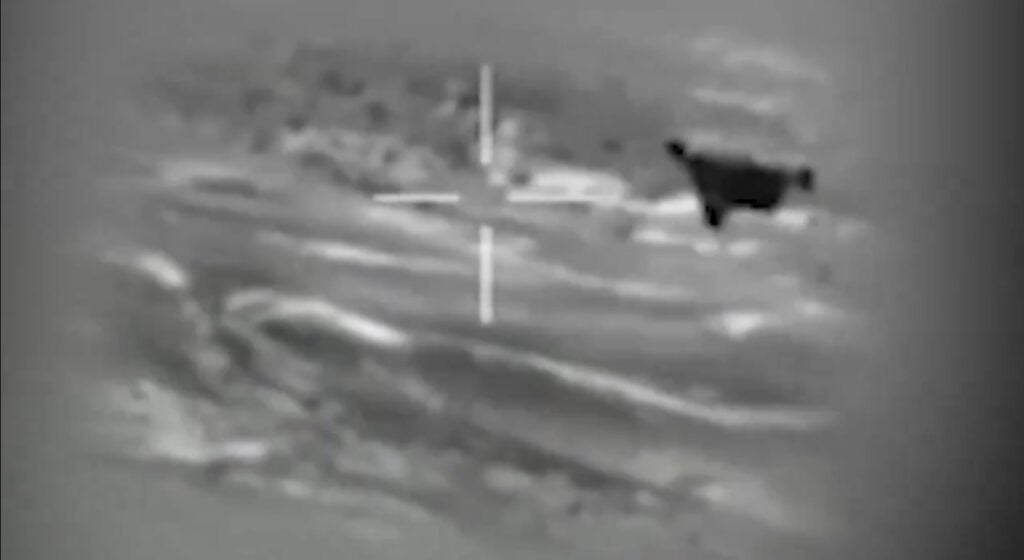As the Fallout From Iran’s Attack Settles, Israel Weighs Its Response
On April 13th, twelve days after Israel’s attack on its Syrian consulate, Iran launched a retaliatory strike against Israel
Israeli officials report that Iran launched a total of over 300 projectiles, including 36 cruise missiles, 185 drones, and 110 ballistic missiles. These were fired directly from Iranian territory and from Iranian proxies in Iraq, Syria, and Yemen.
In terms of pure impact on the ground, the attack proved to be largely unsuccessful. The long distance between Iran and Israel meant that the incoming missiles and drones were spotted hours before they could arrive in Israel, giving it ample time to prepare.
Moreover, the Israeli air defense was supported by several of its allies. According to reporting by CNN, U.S. aircraft shot down dozens of incoming Iranian drones. Additionally, four to six ballistic missiles were destroyed by the U.S. Navy destroyers USS Arleigh Burke and the USS Carney, which were operating in the eastern Mediterranean.
Additionally, Rishi Sunak of the United Kingdom has confirmed the Royal Air Force’s involvement in the defense operations, and there are reports of French jets being involved as well.
Jordan, which notably had avoided direct involvement in the conflict in the past, has also taken action by shooting down dozens of Iranian missiles that were flying over its airspace and strongly pushed for de-escalation in the diplomatic channels.
“Every drone or missile that penetrates Jordanian airspace will be dealt with, to prevent any threat to Jordan or causing harm to Jordanians”
The remainder of the missiles were mostly engaged by Israel’s Arrow anti-ballistic missiles. The IDF have claimed an overall 99% interception rate, with only seven missiles hitting some targets, none of which have caused any notable damage, with an exception of a 7-year old girl who got hit by a shrapnel from an incoming missile and suffered heavy head injuries.
In the wake of the attack, several western-aligned countries, including France, United Kingdom and Jordan have issued statements of condemnation of Iran’s attack, and calling for de-escalation.
Joe Biden has issued a statement reaffirming the U.S’s commitment to defending Israel, but notably indicating that America would not support Israel, should it choose to further retaliate on Iran’s grounds.
Although Iran hasn’t managed to incurr much physical damage directly, it still might claim a victory in other areas. The retaliatory operation was likely intended to hit a sweet spot between doing too little, which would be seen as a sign of weakness, and causing too much damage, which could have possibly prompted a strong response and further escalation from Israel, possibly with western support. The situation is still developing, but some early indications point to Iran achieving that goal.
Moreover, the success of Israel and American defense systems comes at a high cost. In an interview with Israel’s Ynet, Brigadier General Reem Aminoach, who is a former financial advisor to the IDF, gave an estimate of 4-5 Billion ILS for the cost of Israeli defense, or over a billion US dollars. That cost, which is likely at least an order of magnitude higher than the cost of the attack on Iran’s side, is a result of extremely high degrees of precision required by anti-ballistic interceptors and it possibly points to Israel struggling in the long-term with maintaining its air defense capabilities, should the attacks continue.
As Iran announced the completion of what it describes as “Operation Honest Promise”, Israel finds itself weighing possible responses. In a meeting the day after the attack, the Israeli War Cabinet has granted the authority to decide a response to three people, including the Prime Minister Benjamin Netanyahu, Defense Minister Yoav Gallant and former Defense Minister Benny Gantz, who will decide on Israel’s reaction within the coming days.
On April 10th, prior to the attack, Israel’s Minister of Foreign Affairs made a statement on Twitter in Persian, directly targeting Iran’s Supreme Leader, threatening a retaliation on Iran’s territories, should Iran attack Israel from theirs. However, given the U.S. statements suggesting that they would not support an Israeli counter-attack, as well as general calls for de-escalation coming from its allies, Israel would likely find itself alone if it chooses to act on its threats.
It is still unclear how the situation will develop in the coming days, but given that both Israel and Iran are unlikely to be in a position to get into an open war, and the general messaging from Israel’s allies strongly pushing for de-escalation, the likelihood of further attacks seems low for the immediate future. However, the underlying tensions remain unresolved, making the region’s long-term stability highly unpredictable.

